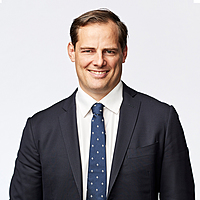The Future Fund likens the current era to the 1930s. Where is the best place to hide?
Raphael Arndt, CEO of the Australia’s $200bn Future Fund recently penned a thought-provoking piece in the Weekend AFR, stating that the current era “looks much more like the world of the 1930s than recent decades”.
The parallels are undeniable: resurgent inflation, simmering nationalism, and a fracturing of the rules-based order that has underpinned the prosperity of the last fifty years. The Russian invasion of Ukraine, the Israel-Palestinian conflict, and the ominous drum beat of war between China and Taiwan certainly add weight to the comparison.
If this is the diagnosis, then what is the prescription?
How can we as investors best protect our wealth in such an uncertain world?
While history does not repeat, it certainly does rhyme. In that spirit we have analysed the performance of different asset classes during a range of historical wars.
We use the S&P 500 as our proxy for equities, US 10-year bonds for fixed income, and Gold for our safe-haven asset. Our analysis covers the period 1871 to 2025.

Gold
Gold, perhaps unsurprisingly, dominates with an average return of 14.2% p.a. in wartime periods vs. a paltry 3.0% p.a. over all periods.
Equities
Equities have done remarkably well during wars, returning an average of 11.2% p.a. vs. 9.2% overall. Armed conflicts are generally accompanied by massive fiscal deficits, increases in government debt, and an activation of the industrial-military complex, so it is not that surprising that equities do well.
Government Bonds
Government bonds, often described as risk free, do less well.
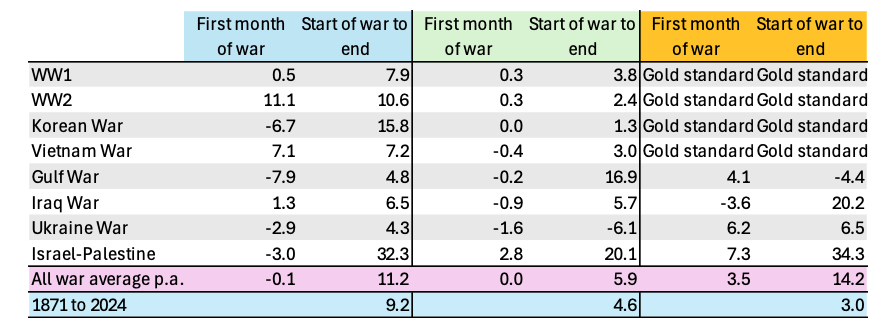
Arndt speaks to the importance of liquidity and flexibility in times of geopolitical stress – Gold and Equities certainly tick those boxes.
A limitation of the analysis above of course is that just as history is written by the victors i.e. our analysis is through the lens of the US… German equity investors fared decidedly less well in the world wars.
And the above analysis is for a US dollar investor.
Because the US behaves as a safe-haven, the US dollar tends to appreciate in times of uncertainty. This means that for an Australian investor in US equities, losses tend to be cushioned by a strengthening US dollar.
The below chart shows that in the worst 10% of S&P 500 monthly declines (since 1984), the US dollar appreciated on average 2.90% vs. the Australian dollar.
In the worst 5% of S&P 500 declines, the US dollar appreciated 3.86%. This bolsters the argument further for US equities in times of geopolitical uncertainty.
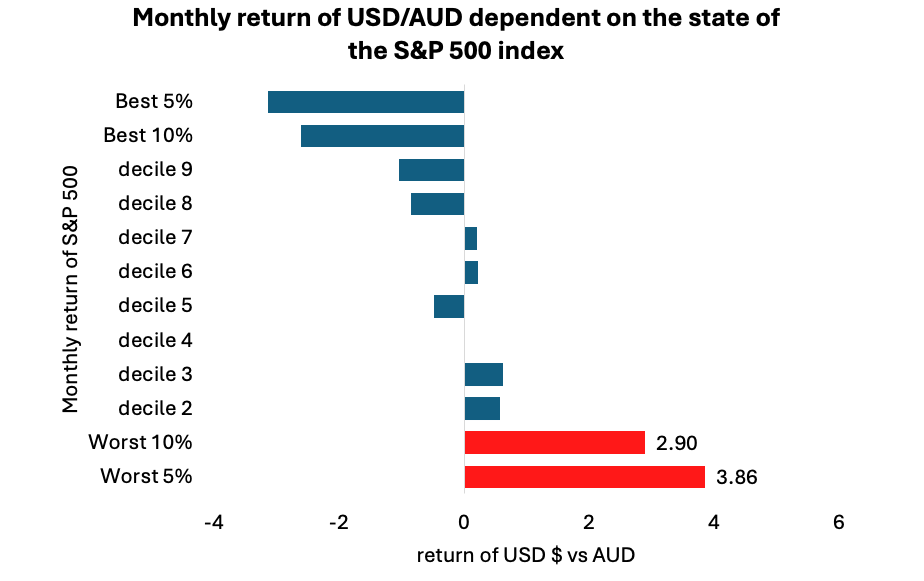
What about buying puts?
An often-suggested solution to macro and geopolitical uncertainty is to simply buy index puts.
Unless you have a crystal ball and know with a degree of precision when volatility is going to spike, buying protection in this way is unwise.
Below we show the performance of holding the S&P 500 index along with index puts of varying moneyness.
Over the long term protective puts are just too costly and you will lag the unhedged index significantly.
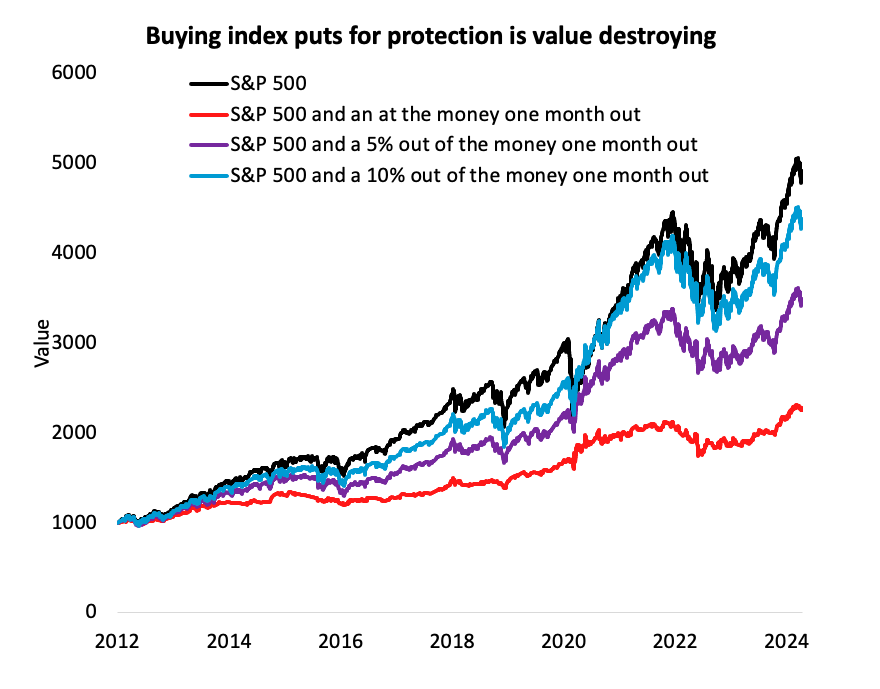
The Australia - China connection
A final argument for international equities vis-à-vis domestic equities if geopolitical tensions were to flare is the reliance of Australia on China for export revenue.
China makes up a third of Australia’s exports. Presumably if China were to invade Taiwan, a trade embargo would ensue, and the the Australian economy would suffer.
Let’s hope that does not come to pass!
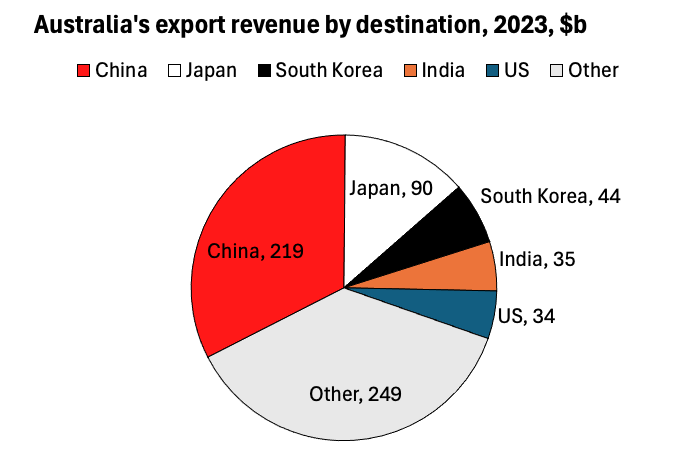
An all-weather global equites solution
Dr David Allen is the portfolio manager of The Plato Global Alpha Fund, an all-weather long/short global equities strategy. Plato manages over $15 billion on behalf of large institutions, financial advisers and their clients, HNW investors, SMSFs, and retail investors.
More about the Fund its performance, and its portfolio can be found here.

More Livewire content from Dr Allen:

.jpg)

1 topic
1 fund mentioned
